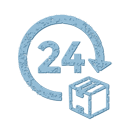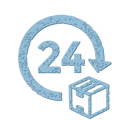
Kovar ÕĘ▓ńČōńö©ÕÆŚÕźĮÕ╣ŠÕŹüÕ╣┤’╝īõĮóĶ®▒ : ŃĆīµłæÕōŗķāĮõ┐éÕ¢║ÕæóÕ║”ÕĢ” ! ŃĆŹŃĆé. Õäśń«ĪµŁĘÕÅ▓ńøĖÕ░ŹĶ╝āķĢĘ, ÕĘźń©ŗķĀśÕ¤¤õ╗źÕż¢ÕśģÕźĮÕżÜõ║║ÕÅ»ĶāĮÕŠ×õŠåķāĮÕåćĶüĮķüÄÕæóÕĆŗÕ»ČĶ▓┤ÕśģÕÉłķćæ. ÕæóÕĆŗõ┐é kovar Õśģµ”éĶ”Į.
ń¦æńō”ÕĆŗÕÉŹÕģČÕ»”õ┐éńö▒ńē╣µŗēńō”ÕĘ×Õģ¼ÕÅĖÕĢ嵩Ö, CRS µÄ¦ĶéĪ, Inc. ń¦æńō”ńłŠõ┐éńŠÄÕ£ŗķ”¢µ¼ĪÕ░łÕł®. õ┐é 1936. ÕÉłķćæµ£¼Ķ║½õ┐éńö©ķÉĄĶŻĮµłÉ, ķÄ│, ÕÉīÕ¤ŗķÄé.
ń¦æńō”ńłŠÕśģńŹ©ńē╣µĆ¦, µēĆõ╗źõĮóÕśģķćŹĶ”üµĆ¦, õ┐éõĮóµ£ēńå▒Ķå©Ķä╣õ┐éµĢĖ’╝īÕÉīńĪ╝ńĪģķģĖńĪģĶē▓ńÄ╗ńÆāķØ×ÕĖĖńøĖõ╝╝ (ńĪ¼ńÄ╗ńÆā) µł¢ĶĆģķÖČńōĘ. ÕæóÕĆŗÕÉłķćæÕśģńå▒Ķå©Ķä╣õ┐éµĢĖÕööõ┐éµäÅÕż¢. ń¦æńō”ńłŠõ┐é, õ║ŗÕ»”õĖŖ, Õ░ÅÕ┐āķģŹµ¢╣’╝īõ╗źµ╗┐ĶČ│ńē╣Õ«Üķ£ĆĶ”ü.
ńö©ķćæÕ▒¼ķģŹÕ░ŹńÄ╗ńÆāÕśģµīæµł░õ┐é’╝īµ»ÅÕĆŗķāĮµ£ēÕööÕÉīÕśģńå▒Ķå©Ķä╣õ┐éµĢĖ. ÕĢÅķĪīõ┐é’╝īńĢČńÄ╗ńÆāÕÉīķćæÕ▒¼ÕŖĀńå▒µł¢ĶĆģÕåĘÕŹ╗µÖé’╝īõĮóÕōŗõ╗źÕööÕÉīÕśģķƤÕ║”ÕÉīÕööÕÉīķćÅÕśģķƤÕ║”ÕÉīµöČńĖ«ÕÉīµöČńĖ«. ÕøĀµŁż, ķćæÕ▒¼ÕÉīńÄ╗ńÆāńĄäõ╗Čõ╣ŗķ¢ōÕśģÕ»åÕ░üÕ░üÕÅŻÕÅ»ĶāĮµ£āĶó½ńĀ┤ÕŻ×, µł¢ĶĆģńÄ╗ńÆāÕÅ»ĶāĮµ£āńóÄÕÆŚ, ńĢČÕģ®ĶĆģķģŹÕ░ŹÕ¤ŗõĖĆķĮŖ’╝īµ║½Õ║”µ£ēĶ«ŖÕī¢.
õĖĆÕĆŗÕĖĖĶ”ŗ, µŚźÕĖĖõŠŗÕŁÉ’╝īķ£ĆĶ”üõĖĆÕĆŗÕÅ»õ╗źÕ«ēÕģ©ķģŹÕ░ŹńÄ╗ńÆāÕśģÕÉłķćæõ┐éńćłµ│Ī. ńö©Õ║ĢÕ║¦ńö©Õśģńćłµ│Ī’╝īÕÉīńÄ╗ńÆāÕśģńå▒Ķå©Ķä╣õ┐éµĢĖÕööÕÉī’╝īµ£āÕøĀńé║ńćłµ│ĪÕ¢║õĮ┐ńö©µÖéµēĆńöóńö¤Õśģńå▒ķćÅĶĆīÕ┐½ķƤµ¢ĘĶŻé. Kovar Ķ¦Żµ▒║ÕæóÕĆŗÕĢÅķĪī’╝īÕøĀńé║ÕÉłķćæÕ║ĢÕ║¦ÕÉīńÄ╗ńÆāńćłµ│Īµō┤Õ╝ĄÕÉīµÄźĶ¦ĖńÄćµÄźĶ┐æńøĖÕÉī.
ńćłµ│ĪÕÅ»ĶāĮõ┐éńö©ń¦æńō”µ£ĆÕĖĖĶ”ŗÕśģõŠŗÕŁÉ, õĮåõ┐éÕæóÕĆŗÕÉłķćæõ┐éÕźĮÕżÜÕööÕÉīÕśģńöóÕōüķāĮńö©Õł░. ń¦æńō”õ║”õ┐éńö©ÕܤĶŻĮķĆĀ x Õģēń«Ī, ÕŠ«µ│óń«Ī, õ║īµźĄń«Ī, µÖČķ½öń«Ī, ÕÉīµø┤ÕżÜ.
ń¦æńō”ÕÅ»ĶāĮÕööõ┐éÕ«ČÕ║ŁÕÉŹ, õĮåõ┐éÕæóÕĆŗķøŻõ╗źńĮ«õ┐ĪÕśģÕÉłķćæõ╗ŹńäČõ┐éµ»ÅÕĆŗÕ▒ŗõ╝üķāĮńö©Õ¢║ńöóÕōüÕģźķØó.
ķĘ╣ÕÉłķćæÕģ¼ÕÅĖÕĘ▓ńČōõ┐éķćæÕ▒¼µźŁÕŗÖõĖŁĶČģķüÄ ... 30 Õ╣┤. µłæÕōŗÕÅ»õ╗źńé║õĮĀÕśģµØɵ¢Öķ£ĆĶ”üµÅÉõŠøĶ¦Żµ▒║µ¢╣µĪł. õ╗ŖµŚźĶü»ńĄĪµłæÕōŗ µā│ń¤źķüōµø┤ÕżÜµłæÕōŗÕśģńöóÕōü’╝īµł¢ĶĆģĶÉĮÕ¢«.






